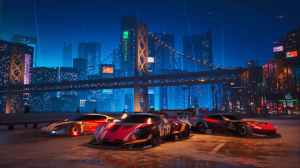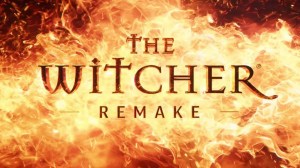When audiences saw what Luke Skywalker had become in Star Wars: The Last Jedi, it was a shock to everyone, to say the least. When last we saw the hero, he was toppling the Galactic Empire not only through combat with his father Darth Vader, but also by refusing to give in to the Emperor’s wishes to see him turn to the Dark Side. Despite The Last Jedi then going on to explain how one of the greatest heroes in sci-fi cinema ended up a hermit who turned his back on his heroic nature, it was a tough pill for all fans to swallow that, after not seeing Luke in a movie for three decades, we wouldn’t be getting the back-flipping badass many had come to expect. Luckily, the Season Two finale of The Mandalorian gave fans the best of both worlds by depicting the Jedi in all his righteousness while also reinforcing how his own hubris was his biggest flaw.
Videos by ComicBook.com
Following Disney’s purchase of Lucasfilm, the Star Wars Expanded Universe, which chronicled a number of heroic adventures for Luke, had been wiped from the official canon. Heading into the sequel trilogy, a number of fans, and even actor Mark Hamill himself, had spent years speculating about the many courageous journeys he had embarked upon. Rather than bringing those imagined adventures to life, writer/director Rian Johnson envisioned what would happen to the hero with an ego that was left unchecked.
When you strip all expectations from Luke’s journey, it’s pretty simple to grasp. Having defeated the Emperor and bringing his father back from the Dark Side in the moments before his death, Luke had never quite known failure. In hopes of reviving the Jedi, he successfully trained a number of padawans, only for his own nephew’s call towards the darkness and manipulation from afar by Palpatine leading to the destruction of what Luke had built. Facing the all-new concept of humility, Luke felt himself a failure and abandoned everything and everyone he knew and loved in hopes of atoning for allowing Ben Solo to become Kylo Ren.
Now, thanks to The Mandalorian, we get a much better sense of not only his heroism, but also of his pride.
As we witness Din Djarin struggle to best even one dark trooper, Luke deftly and brutally eradicates every threat in his way. Much like Rogue One: A Star Wars Story showed off a new sense of ruthlessness for Vader, so did the season finale of The Mandalorian for Luke. From vicious lightsaber blows to impressive maneuvers with the Force, audiences see Luke demonstrate all the impressive tools at his disposal, showing off the Jedi at the height of his power.
When the dust from battle settles, Luke’s confidence in himself and as a Jedi is so strong that he doesn’t even identify himself. He assures that he’s a Jedi, and it’s clear there’s an unspoken power in his words, eliciting trust in Din Djarin that this is the person Grogu should go with for training. Earlier in the season, Ahsoka Tano was much more eloquent about her connection to the Force and what was best for Grogu, with Luke instead letting his actions speak more loudly than his words.
For the years following the Emperor’s defeat, Luke’s confidence went unchecked, likely only growing with every such encounter where he could vanquish any threat in his way and, without speaking, let his actions represent his pureness of heart. His failure to keep Ben Solo from the Dark Side didn’t represent a slight setback on his path, but saw his entire, unchecked bravery come crashing down around him. While heroes like Han Solo and Leia Organa earned more complex and nuanced narratives throughout the saga, Luke’s entire identity, both internally and for audiences, was guided by his courage.
Luke failing in some ways while he still manages to experience victories is a trend for the character. As Han expressed after being saved by Leia and Lando from Jabba the Hutt’s clutches, Luke has a habit of experiencing delusions of grandeur.
In Star Wars: The Empire Strikes Back, he abandons Yoda’s training and loses a hand in the process, while also failing to rescue Han. Leia, Lando, and Chewbacca save themselves from Vader, but because he reunites with his friends, he likely doesn’t consider he didn’t directly assist them. In Return of the Jedi, Luke let his anger get the best of him, just as the Emperor had intended by taunting him about Leia, yet with Vader ultimately toppling Palpatine, his actions once again resulted in a net victory, despite his failures. Luke surely didn’t reflect on these situations with the ways in which he had failed what Obi-Wan Kenobi and Yoda taught him, merely just internalizing how he was a key component in thwarting the Galactic Empire, enabling his own self-assurance.
The Mandalorian successfully pulled off the feat of delighting both sides of the fandom; those who longed for the Luke at the peak of his Jedi abilities saw his prowess, while also heightening his ego in the years after the destruction of the Empire to cement just how hard his failures with Ben would hit him. The result is a more layered depiction of Luke that elucidates the exact vision of him we see in The Last Jedi, with the Luke we see in that film’s finale realizing the power of his abilities, as well as the need for him to learn from his own past, especially the times in which he failed.
What did you think of seeing Luke in The Mandalorian? Let us know in the comments below or contact Patrick Cavanaugh directly on Twitter to talk all things Star Wars and horror!








